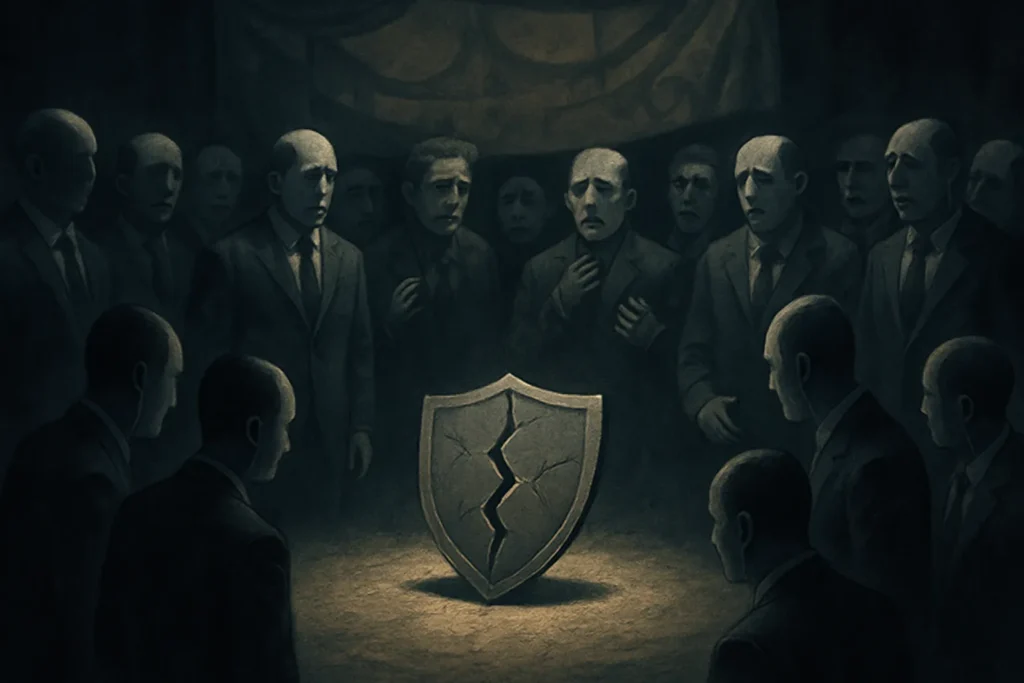Suspensions Follow Critical Review of Security Lapses
Nearly one year after an assassination attempt on former President Donald Trump at a campaign rally in Butler, Pennsylvania, the Secret Service has suspended six agents without pay. The suspensions, ranging in duration from 10 to 42 days, involved significant operational failures identified in an extensive Department of Homeland Security review. The suspended personnel, which include agents in supervisory positions and those on the frontline, have since returned to work under restricted duties and reduced responsibilities.
On July 13, 2024, Thomas Matthew Crooks, a 20-year-old shooter, fired eight rounds at Trump, grazing Trump’s ear, killing one attendee, identified as Corey Comperatore, and injuring two others. The incident has been recognized as the most severe assassination attempt on a current or former U.S. president since Ronald Reagan’s 1981 assassination attempt. Secret Service Deputy Director Matt Quinn characterized the incident as an “operational failure,” noting specifically that the personnel suspended were primarily from the Pittsburgh field office and one member of Trump’s personal detail.
“We aren’t going to fire our way out of this,” Quinn stated. Instead of terminating personnel, the agency will address systemic root causes and ensure comprehensive reform.
“Secret Service is totally accountable for Butler. Butler was an operational failure, and we are focused today on ensuring that it never happens again,” Quinn emphasized during a recent briefing.
The report sharply criticized the Secret Service, concluding that better preparation and quicker responses could have prevented the breach. It highlighted that Crooks successfully climbed atop a nearby building outside the secure perimeter, armed himself with explosives, and flew a drone to measure distance before the attack. Moreover, despite local authorities alerting the Secret Service to suspicious activity on the rooftop nearly half an hour before the shooting, Trump was not moved from the stage promptly when the danger became evident.
Agency Implements New Security Measures
Facing intense scrutiny and congressional criticism, the Secret Service is actively implementing measures to rectify highlighted shortcomings. Deputy Director Matt Quinn announced the integration of military-grade drones for aerial surveillance and the deployment of mobile command posts to maintain continuous radio contact with local law enforcement. Previously, such technologies were not in use, significantly limiting the agency’s response capabilities during the Butler attack.
Former Secret Service Director Kimberly Cheatle resigned abruptly just ten days after the attack, accepting full responsibility for the critical security lapses exposed by the incident. Following Cheatle’s departure, Quinn underscored the focus on internal reforms rather than dismissals, a stance supported by a 180-page bipartisan House task force report recommending significant procedural updates.
Among the crucial recommendations was mandatory recording of all Secret Service radio transmissions, emphasizing prioritization on protecting U.S. presidents and senior government officials over foreign dignitaries.
“The Secret Service must evolve rapidly and effectively,” stated the House task force in their detailed report. “The failures observed at Butler are unacceptable, demanding systemic reforms in training, technology, communication, and operational strategy.”
Lawmakers initially questioned the effectiveness of suspensions, suggesting that harsher penalties might have been warranted. The victim’s family echoed these sentiments, with Corey Comperatore’s sister, Kelly Meeder, expressing frustration that no terminations occurred despite evident negligence.
Historical Context and Broader Implications
Historically, the Secret Service has faced intense scrutiny after security breaches and assassination attempts. Most notably, after the assassination attempt on President Ronald Reagan in 1981, the agency initiated expansive security reforms that reshaped its operations, increased personnel training, and upgraded protective procedures. This historical precedent highlights the necessity of learning from incidents rather than merely punishing involved personnel.
Since its creation in 1865, primarily to combat currency counterfeiting, the role of the Secret Service expanded significantly following the assassination of President William McKinley in 1901. It has since been the principal authority responsible for the protection of U.S. presidents, vice presidents, major presidential candidates, and designated senior officials. Despite ongoing enhancements in technology and operational methodologies, occasional breaches such as the Butler incident reveal vulnerabilities requiring constant vigilance and evolution.
The Butler assassination attempt carries significant policy implications, including renewed discussions about security protocols, training, and inter-agency coordination. Concerns about complacency and bureaucratic inertia within the agency were explicitly highlighted in investigative reports following the incident. Experts stress the importance of agility and proactive threat assessment, considering escalating domestic threats and political tensions.
“This incident must serve as a catalyst for policy renewal and strategic overhaul,” security consultant and former Secret Service agent Thomas Gannon remarked. “We must have not just accountability but structural improvements, ensuring rigorous standards to adapt to emerging threats effectively.”
In the wake of this incident, Representative Mike Kelly of Pennsylvania, whose district includes Butler, supported the reforms, emphasizing transparency and accountability within the agency. Kelly praised the current Secret Service leadership for taking decisive steps towards meaningful operational changes.
Ensuring presidential security remains an evolving challenge, demanding continual reassessment and improvement of protective protocols. The agency’s recent response, including suspensions and new security protocols, signals a clear recognition of these needs, underscoring the broader significance of comprehensive operational reform.
Moving forward, the Secret Service’s priority will be to build upon these reforms to restore trust and ensure the highest level of protection for America’s elected leaders. The full efficacy of these new measures will be closely monitored by government oversight committees and external analysts to ensure lasting improvements.


